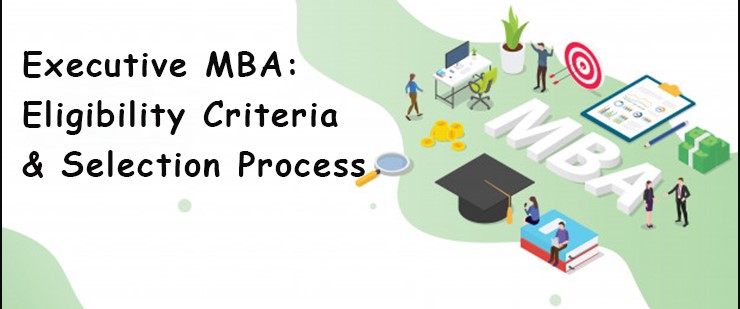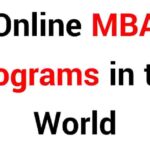Choosing the executive MBA best suited to your career goals, lifestyle, and ambitions is a pivotal decision that can significantly impact your professional trajectory. An Executive MBA is not just another degree; it’s an investment of your time, money, and energy aimed at elevating your leadership capabilities, expanding your network, and accelerating career growth. With numerous programs available globally, understanding how to choose the executive MBA best for your unique needs is essential.
In this article, we will explore the critical factors to consider when selecting an Executive MBA program, key questions to ask, and tips to help you identify the executive MBA best aligned with your objectives. Whether you’re a senior manager, entrepreneur, or a professional aiming to break through the glass ceiling, this guide will help you navigate the complex decision-making process.
Key Takeaways
- The executive MBA best program is tailored to your unique career goals and lifestyle.
- Accreditation and reputation are fundamental indicators of program quality.
- Curriculum relevance and specializations matter for career alignment.
- Flexibility in format is crucial for working professionals.
- Faculty expertise and strong industry connections enhance learning outcomes.
- A robust alumni network provides lifelong value beyond graduation.
- Financial considerations and ROI must be carefully evaluated.
- Engage directly with programs and alumni to assess fit.
- Avoid common mistakes like focusing only on brand without considering personal fit.
- The executive MBA best is the one that empowers your leadership journey and career advancement.
Understanding What an Executive MBA Is

Before embarking on the journey to find the executive MBA best program for your career goals, it’s crucial to understand what an Executive MBA (EMBA) actually is and how it differs from a traditional MBA. This foundational knowledge helps clarify whether the Executive MBA is the right path for you and what benefits you can expect from pursuing such a program.
What is an Executive MBA?
An Executive MBA is a graduate-level business degree specifically designed for experienced professionals and executives who are looking to enhance their leadership skills, expand their strategic thinking, and accelerate their career growth without stepping away from their current jobs. Unlike a traditional MBA, which often targets early to mid-career professionals seeking to gain business fundamentals or switch careers, the Executive MBA caters to individuals with significant managerial experience—typically 8 to 15 years or more.
The executive MBA best programs offer a curriculum that builds on your existing professional knowledge, emphasizing advanced management concepts, leadership development, global business strategies, and practical applications. The structure is usually flexible to accommodate full-time work, with classes often held on weekends, in modular formats, or via hybrid delivery.
How Does an Executive MBA Differ from a Traditional MBA?
The key differences between an Executive MBA and a traditional MBA help highlight why the executive MBA best programs are tailored uniquely for senior professionals:
- Experience Level: EMBA candidates generally have much more professional experience and often hold mid-to-senior level leadership roles. Traditional MBA students may be earlier in their careers.
- Program Format: Executive MBA programs are designed for working professionals with busy schedules, offering classes during weekends, evenings, or in short residencies, whereas traditional MBAs often require full-time attendance.
- Curriculum Focus: The Executive MBA curriculum emphasizes strategic leadership, high-level decision-making, and cross-functional management, building on the professional expertise that students already bring. Traditional MBA programs typically cover foundational business skills and may be more theory-oriented.
- Networking Opportunities: EMBA cohorts consist of experienced professionals, providing a rich peer learning environment. This network is often seen as one of the biggest assets of the MBA best programs.
Who Should Consider an Executive MBA?
An Executive MBA is ideal for professionals who want to:
- Accelerate their career progression into executive or C-suite roles.
- Transition into new leadership roles or industries.
- Build a global business perspective.
- Expand their professional network with senior peers.
- Develop advanced strategic thinking and leadership skills.
- Gain credibility and formal recognition for their expertise.
If you find yourself aiming to enhance your leadership impact without sacrificing your current career momentum, the MBA best programs are designed precisely for such goals.
Why Is the Executive MBA Considered Among the Best for Senior Professionals?
The executive MBA best programs provide a blend of academic rigor and practical relevance tailored to senior professionals. These programs acknowledge that experienced leaders learn best by applying concepts to real business challenges, engaging in peer discussions, and gaining global exposure.
The ability to continue working while studying means EMBA participants can immediately implement learnings in their organizations, creating a direct impact. This immediacy and relevance often make MBA degrees highly regarded by employers and a top choice for seasoned professionals worldwide.
Factors to Consider When Choosing the Executive MBA Best Program
Selecting the executive MBA best program requires thoughtful consideration of several factors to ensure the program aligns with your career goals, lifestyle, and financial situation.
Reputation and Accreditation
One of the primary indicators of an executive MBA best program is its reputation and accreditation status. Accredited programs meet rigorous standards set by recognized educational bodies such as AACSB (Association to Advance Collegiate Schools of Business), AMBA (Association of MBAs), or EQUIS (European Quality Improvement System). Accreditation ensures the quality of the curriculum, faculty, and resources.
The reputation of the business school and its MBA program can impact the value of your degree, your network, and the quality of learning. Look for schools that consistently rank highly in global MBA rankings, as these tend to be regarded as offering the executive MBA best experience.
Curriculum and Specializations
The curriculum should align with your career aspirations. Some MBA programs offer general management training, while others provide specializations in areas like finance, marketing, entrepreneurship, technology management, or healthcare.
When searching for the executive MBA best program, review the curriculum structure, core courses, electives, and any hands-on projects or global immersions offered. The curriculum should not only enhance your leadership skills but also deepen your expertise in your industry.
Flexibility and Format
Given that Executive MBA candidates are typically working professionals, flexibility in program format is a critical factor. Some programs offer weekend classes, evening sessions, or modular formats where students attend intensive residencies a few times a year. Others may provide hybrid or fully online options.
The executive MBA best program for you should accommodate your professional and personal commitments without compromising the learning experience.
Faculty Expertise and Industry Connections
The quality and expertise of faculty members play a huge role in delivering the executive MBA best education. Professors should be thought leaders and experienced practitioners who bring cutting-edge research and real-world insights into the classroom.
Moreover, strong industry connections can facilitate internships, consulting projects, and networking opportunities that enhance your learning and career advancement.
Alumni Network and Career Services
A powerful alumni network is one of the most valuable assets of an executive MBA best program. Alumni can provide mentorship, job referrals, and partnership opportunities. Investigate how active and supportive the alumni community is.
Additionally, effective career services that offer personalized coaching, job placement support, and leadership development programs add immense value.
Cost and Return on Investment
An MBA is a significant financial investment. While searching for the executive MBA best program, carefully analyze the total cost, including tuition, travel, accommodation (if residential), and opportunity cost of time away from work.
Compare the program’s cost with the potential salary increase, promotions, and professional growth opportunities it can unlock to evaluate your return on investment.
Location and Global Exposure
Location matters not only for convenience but also for the business environment and global exposure offered. Some MBA programs include international modules or global immersion trips that expose you to diverse business cultures and markets.
Programs based in global business hubs or those with strong international partnerships are often considered part of the MBA best offerings.
Types of Executive MBA Programs
When exploring how to find the executive MBA best program for your needs, understanding the different types of Executive MBA formats available is crucial. Each type caters to varying professional demands, learning preferences, and geographic locations. Choosing the right format can significantly affect your ability to balance work, life, and study while maximizing the benefits of the program.
Weekend Executive MBA Programs
Weekend MBA programs are designed for busy professionals who can dedicate their weekends to study. Classes typically run on Saturdays and Sundays, allowing students to continue working full-time during weekdays. This format offers a good balance of intensive learning and minimal work disruption.
The executive MBA best weekend programs often include a mix of lectures, group work, and networking events, making them ideal for professionals who prefer in-person interaction but need to maintain their job responsibilities.
Modular Executive MBA Programs
Modular Executive MBA programs organize learning into intensive blocks or modules, typically lasting one to two weeks. Students attend these modules on campus or at designated locations, often several times a year. Between modules, students continue working and complete assignments remotely.
This format suits professionals with flexible schedules or those who travel frequently, offering concentrated bursts of study with significant time to apply learnings in their work environment. The executive MBA best modular programs often include international modules or global immersions, enhancing global business understanding.
Online and Hybrid Executive MBA Programs
Online and hybrid MBA programs provide the highest degree of flexibility. Online EMBAs deliver coursework through digital platforms, allowing students to learn from anywhere in the world. Hybrid programs combine online instruction with periodic in-person sessions or residencies.
The executive MBA best online and hybrid programs use advanced technology to foster interactive learning through live lectures, discussion forums, and virtual group projects. These programs are perfect for professionals who require geographic flexibility or cannot commit to regular campus attendance but still want a rigorous and engaging learning experience.
Global Executive MBA Programs
Global MBA programs emphasize international business and leadership. They often include study trips, global residencies, or partnerships with business schools across different countries. Students gain exposure to diverse markets, cultures, and business practices.
The MBA best global programs attract professionals seeking leadership roles in multinational companies or those who want to expand their international networks. These programs also develop a global mindset critical for success in today’s interconnected economy.
Industry-Specific Executive MBA Programs
Some Executive MBA programs cater specifically to certain industries such as healthcare, technology, finance, or energy. These programs offer specialized courses that address industry-specific challenges, trends, and regulations.
The executive MBA best industry-specific programs help professionals deepen their expertise and leadership skills within their sector, making them highly relevant for those aiming to become experts or leaders in a particular field.
Choosing the Right Type for You
Determining which type of MBA program fits your lifestyle and career goals is a key step in finding the MBA best program. Consider factors like your work schedule, travel ability, learning preferences, and professional aspirations. Whether you need the flexibility of online learning, the immersive experience of global residencies, or the focus of industry-specific coursework, there’s an Executive MBA type tailored to meet your needs.
Steps to Identify the Executive MBA Best for You

The process of finding the executive MBA best program tailored to your needs can be systematic and structured. Here’s a step-by-step approach:
Self-Assessment of Goals and Priorities
Start by clearly defining your career goals and personal priorities. Are you looking to move into a C-suite position? Switch industries? Start your own business? Or enhance leadership skills within your current field?
Understand what you want from the executive MBA best experience, including the skills you want to develop, network you want to build, and the learning format that suits your lifestyle.
Research and Shortlist Programs
Use business school rankings, accreditation lists, and professional recommendations to compile a list of potential MBA programs. Evaluate each on the factors above—reputation, curriculum, format, faculty, cost, and location.
Narrow your list based on which programs most closely align with your goals and constraints.
Attend Information Sessions and Talk to Alumni
Attend webinars, open days, or info sessions hosted by schools. These provide insights into the program culture, teaching methods, and community.
Connecting with current students and alumni gives you a first-hand perspective on the program’s strengths and challenges and whether it lives up to the executive MBA best reputation.
Evaluate Admissions Requirements and Fit
Each program has specific admissions criteria, including work experience, educational background, test scores (like GMAT or GRE), essays, and interviews.
Make sure you understand these requirements and assess whether you fit well with the cohort profile. Cultural and peer fit is crucial since much of the learning comes from cohort interactions.
Consider Financial Aid and Scholarships
Explore scholarships, employer sponsorships, and financial aid options available. The executive MBA best program doesn’t necessarily mean the most expensive—it means the one that provides the best value and opportunity given your budget.
Plan for Time Commitment and Work-Life Balance
An MBA demands significant time commitment. Evaluate whether the program schedule allows you to balance work, study, and family life sustainably.
Programs that are overly disruptive or inflexible might not be the executive MBA best for your personal circumstances, no matter how prestigious.
Common Mistakes to Avoid When Choosing Your Executive MBA
Choosing the executive MBA best program is a significant decision that requires careful thought and research. Many candidates make avoidable mistakes that can lead to dissatisfaction, wasted resources, or missed opportunities. To ensure you find the program that truly fits your goals and lifestyle, here are some common mistakes to avoid:
| Common Mistakes to Avoid | Explanation |
|---|---|
| Choosing Based Solely on Brand Name | Selecting a program just for its prestige without considering personal fit or curriculum relevance. |
| Ignoring Curriculum Relevance | Overlooking whether the program offers courses and specializations that match your career goals. |
| Neglecting Alumni Network and Career Services | Underestimating the importance of a strong network and support services for career advancement. |
| Overlooking Total Costs | Focusing only on tuition and ignoring additional expenses like travel, accommodation, and time off work. |
| Underestimating Time Commitment | Failing to realistically assess the workload and impact on work-life balance. |
| Not Researching Faculty Expertise | Choosing programs without reviewing faculty credentials or industry experience. |
| Overlooking Program Format and Flexibility | Picking a program that doesn’t fit your schedule or work commitments. |
| Ignoring Accreditation and Reputation | Enrolling in programs that lack recognized accreditation or strong market reputation. |
| Failing to Connect with Alumni or Current Students | Missing out on insights that can help evaluate the program’s real-world value and fit. |
| Not Considering Global Exposure or Location | Overlooking the benefits of international modules or the strategic importance of the program’s location. |
Also Read: What Are the Best MBA Scholarships Available Today?
Conclusion
Choosing the MBA best program for you is a decision that requires careful thought, research, and honest self-assessment. It is a journey that goes beyond rankings and prestige — it’s about finding the program that fits your career aspirations, learning style, and life situation.
By focusing on reputation, curriculum, flexibility, faculty, alumni network, cost, and location, and by engaging deeply with program representatives and alumni, you can find the executive MBA best that accelerates your professional growth and expands your global outlook.
Remember, the executive MBA best is the one that helps you unlock your full potential, creates opportunities, and equips you with the skills to lead effectively in today’s complex business environment.
FAQs
What defines the Executive MBA best program?
The MBA best programs are those that combine academic rigor, flexible schedules, excellent faculty, strong alumni networks, and career services tailored to experienced professionals.
Is the Executive MBA better than a traditional MBA?
It depends on your career stage. The designed for senior professionals with significant work experience, while traditional MBAs often target early-career candidates.
How important is accreditation when choosing an Executive MBA?
Extremely important. Accreditation ensures the program meets quality standards, which affects your degree’s value and acceptance in the business world.
Can I do an Executive MBA while working full-time?
Yes, most executive MBA best programs are designed with working professionals in mind, offering flexible schedules and part-time formats.
Will an Executive MBA help me change industries?
Yes, many candidates use the Executive MBA to pivot careers, but the program you choose should have strong offerings in your target industry.
How do I finance an Executive MBA?
Options include personal savings, employer sponsorship, scholarships, loans, and financial aid. Plan your finances carefully considering all costs.
How do I know if an Executive MBA program has a strong network?
Research the size and activity level of the alumni community, events, mentorship programs, and career services offered by the school.



